Opting for an off-grid lifestyle in Texas is a unique blend of liberation and challenge. The vast landscapes and diverse terrains of Texas offer an idyllic location for this transition. However, it’s important to understand the legal nuances of living off-grid in this state. This involves a thorough knowledge of building codes and zoning laws, water and waste management norms, as well as the regulations surrounding renewable energy sources.
Here are some key takeaways to consider:
- Building codes and zoning laws in Texas vary significantly between counties. Researching local laws is crucial as they can impact everything from the type of home you can build to the kind of utilities you can use.
- Water rights in Texas are governed by the “right of capture” rule, allowing landowners to pump and use the groundwater beneath their property. However, certain restrictions apply, especially in areas governed by Groundwater Conservation Districts.
- Waste management systems like compost toilets and septic systems are generally permitted in Texas, but some counties have specific rules around their use.
- Texas is a powerhouse state when it comes to renewable energy, making it an ideal location for off-grid living. However, understanding the nuances of these systems is vital for efficient use.
- While living off-grid is about embracing a new way of life, it doesn’t mean cutting yourself off from the world. Many off-gridders earn an income online, combining the best of both worlds.
Off-grid Living Laws in Texas: An Overview
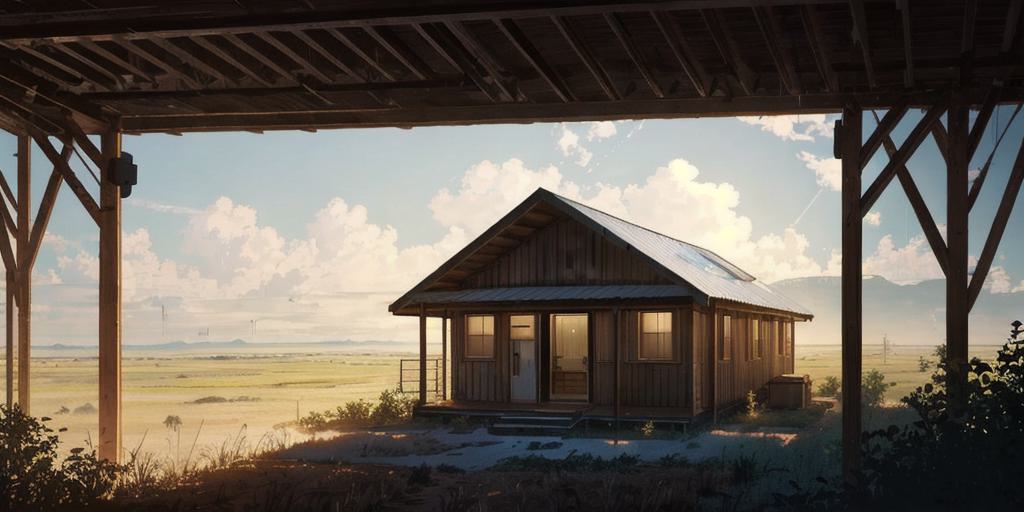
Understanding Texas Off-Grid Laws
For those yearning for a shift away from the chaos of urban life, the idea of shifting to an off-grid lifestyle may seem nothing short of a utopia. Texas, with its vast landscapes and diverse terrain, has become a favored destination for many wanting to make the leap. However, before you set out on this new journey, it’s crucial to understand the legal nuances of off-grid living in Texas.
Building Codes and Zoning Laws
When it comes to off-grid living, Texas is relatively flexible. However, building codes and zoning laws can vary significantly between counties and even within the same county. Certain counties have no building codes, which means you can construct your homestead as you please. However, others may require permits and adherence to specific construction standards.
It’s crucial to research the local laws in the area you’re interested in, as they can impact everything from the type of home you can build to the kind of utilities you can use. For example, some areas may restrict the use of certain types of alternative energy, while others may have regulations around water and waste management.
Water and Waste Management
Water is a critical aspect of off-grid living. In Texas, water rights are typically governed by the “right of capture” rule, which allows landowners to pump and use the groundwater beneath their property. However, certain restrictions apply, particularly in areas governed by Groundwater Conservation Districts.
When it comes to waste management, compost toilets are generally permitted in Texas, with some counties having specific rules around their use. Other waste management systems, such as septic systems, may require permits and inspections.
Transitioning to Off-Grid Living in Texas
While the legalities are an important part of the process, transitioning to off-grid living is about more than codes and permits. It’s about embracing a new way of life that brings you closer to nature and away from the incessant demands of the urban grind. Whether you’re planning to grow your own food, harness solar power, or simply enjoy a slower pace of life, off-grid living in Texas can offer a fulfilling and sustainable lifestyle.
Remember, living off-grid doesn’t necessarily mean cutting yourself off from the world. Many off-gridders also earn an income online, proving that you can enjoy the best of both worlds. Like the woman who found her paradise homesteading off-grid in New Mexico, you too can create your own version of paradise in Texas.
In the end, the journey towards off-grid living is about finding balance, embracing self-reliance, and creating a life that aligns with your values. As always, the key is to be informed and prepared. With the right knowledge and resources, you can navigate the Texas off-grid laws and carve out your own piece of off-grid heaven.
Understanding the Legal Requirements for Off-grid Homes in Texas
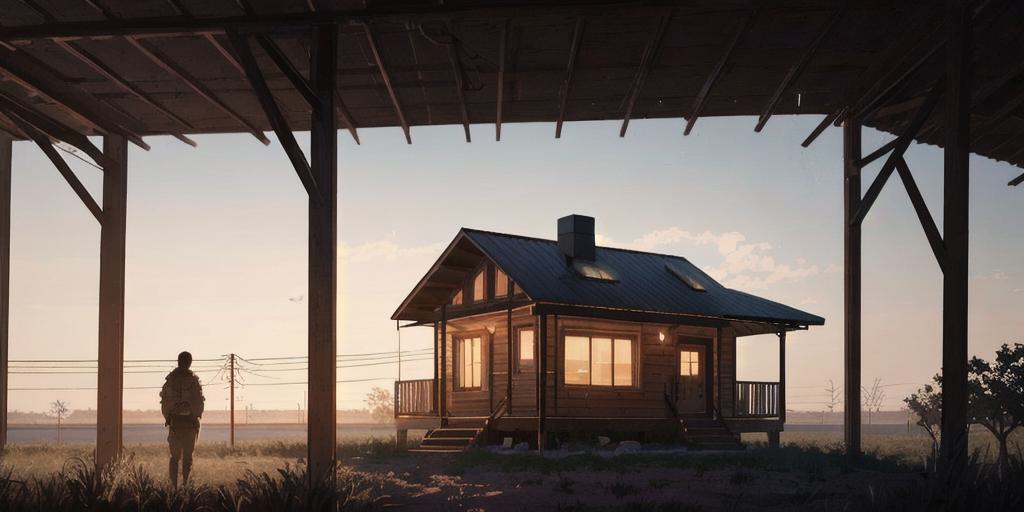
Exploring Building Codes and Zoning Laws
Embracing the off-grid lifestyle can be liberating, especially in a state like Texas that is generally flexible with off-grid living. However, it’s not a one-size-fits-all scenario. Texas has a patchwork of building codes and zoning laws that vary by county, and in some cases, even within the same county. Some areas operate under a laissez-faire system with no building codes, while others require strict adherence to specific construction standards and permits. In essence, your off-grid dream home’s design might be subject to local laws and regulations.
Before you embark on this journey, it’s crucial to thoroughly research the local laws in the area you’re interested in. They can impact everything from the type of home you can build to the kind of utilities you can use. For instance, certain areas may restrict the use of specific types of alternative energy, while others may have regulations around water and waste management. The key here is to be informed and prepared. Knowledge, after all, is your best tool in navigating the complexities of off-grid living.
Understanding Water and Waste Management
Water is the lifeblood of off-grid living. In Texas, water rights are typically governed by the “right of capture” rule, which allows landowners to pump and use the groundwater beneath their property. However, like everything else, this too comes with its own set of restrictions, particularly in areas governed by Groundwater Conservation Districts. The takeaway here is that your dream of an off-grid lifestyle, complete with a self-sustaining water system, might have to align with local water laws.
Similarly, waste management is another critical aspect where compost toilets are generally permitted in Texas, with some counties having specific rules around their usage. Other waste management systems, such as septic systems, may require permits and inspections. So, while going off-grid offers a chance to break free from the urban grind, it doesn’t necessarily mean a complete dissociation from regulations and legal requirements.
The Journey Towards Off-Grid Living in Texas
Moving off-grid is more than just dealing with codes, permits and legalities. It’s about embracing a new way of life that brings you closer to nature and away from the incessant demands of the urban grind. Whether you’re planning to grow your own food, harness solar power, or simply enjoy a slower pace of life, off-grid living in Texas can offer a fulfilling and sustainable lifestyle. It’s akin to finding your own version of paradise, like the woman who found hers homesteading off-grid in New Mexico.
But remember, going off-grid doesn’t mean you have to completely cut yourself off from the world. Many off-gridders earn an income online, combining the best of both worlds. The key to successful off-grid living is finding balance, embracing self-reliance, and creating a life that aligns with your values. As always, the journey towards off-grid living is a process, and with the right knowledge, resources, and a dash of determination, you can navigate the Texas off-grid laws and carve out your own piece of off-grid heaven.
Renewable Energy Sources and Off-grid Living in Texas
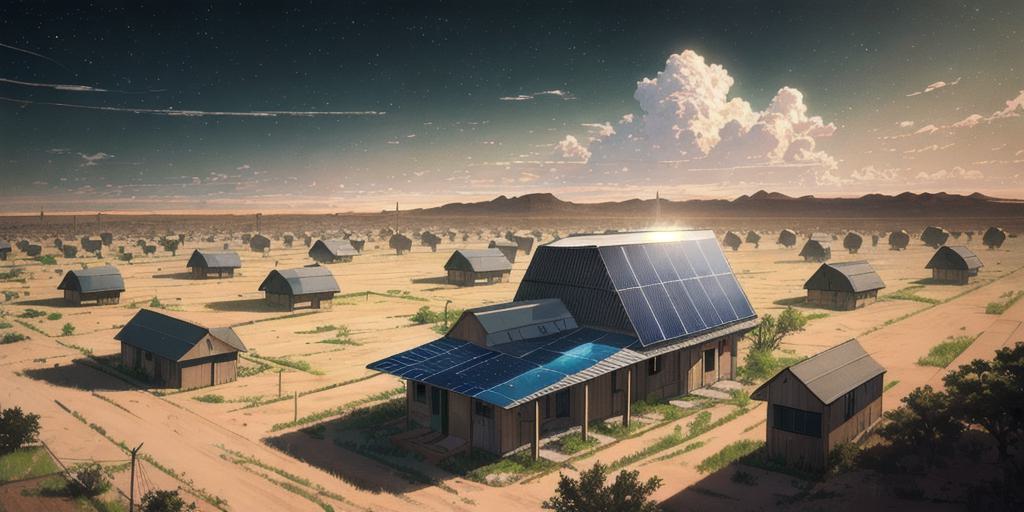
Harvesting Renewable Energy in Texas
As we venture further into the realm of off-grid living, the role of renewable energy sources cannot be overlooked. Indeed, Texas is a powerhouse state when it comes to renewable energy, boasting the highest projected 5-year growth of solar installations and the highest projected 10-year growth of wind power production. According to 24/7 Wall Street, Texas ranks second best for living off-grid. This is a testament to the state’s commitment to renewable energy sources and its capacity to support sustainable, off-grid living.
But harnessing this potential isn’t just about installing a few solar panels or wind turbines. It’s about understanding the nuances of these systems, their advantages and limitations, and how they can be integrated into your off-grid lifestyle. For instance, solar power generation is highly dependent on weather conditions and the time of day, while wind power can be sporadic and unpredictable. It’s about striking a balance, creating a hybrid system that maximizes efficiency and ensures a steady supply of power.
Life Beyond the Grid: Adapting to Renewable Energy
There’s a certain romance to the idea of living off the grid, of being self-sufficient and disconnected from the hustle and bustle of modern life. But it’s not just about cutting the cord. It’s about embracing a new mindset, a new way of life. It’s about viewing every sunrise as a source of power, every gust of wind as a gift of energy.
Adapting to renewable energy is not a step backwards, but a leap forward. It’s an opportunity to leverage technology, to harness the power of nature, and to live in harmony with the environment. And Texas, with its abundant sunshine and wind, offers an ideal setting for this lifestyle. As Blue Pacific Solar points out, more and more Americans are opting for self-sufficiency, with off-grid solar kit sales skyrocketing.
Embracing the Off-Grid Challenge: The Road Ahead
The journey towards off-grid living is not without its challenges. It requires a shift in mindset, a willingness to adapt and learn, and most importantly, a spirit of resilience. But the rewards are worth the effort. Living off the grid can offer a sense of freedom and fulfillment that’s hard to find in the urban jungle.
Indeed, the road towards off-grid living is not a one-way street. It’s an ongoing process of learning, adapting, and growing. And while Texas offers a conducive environment for off-grid living, the real journey begins within. It’s about finding the courage to break away from the norm, the creativity to make the most of your resources, and the conviction to live in tune with nature. After all, off-grid living is more than just a lifestyle, it’s a philosophy, a testament to the human spirit’s resilience and adaptability.
Water and Septic Systems in Off-grid Homes in Texas
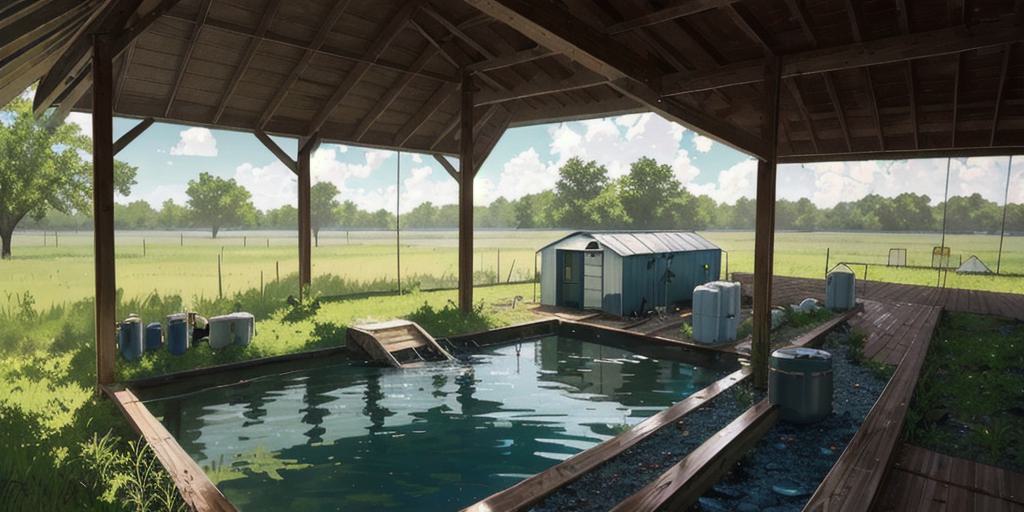
Understanding Water and Septic Systems in Texas Off-Grid Living
Water is the essence of life. As we break the chains of the conventional 9-5 grind and embrace the freedom of off-grid living, we are faced with the task of ensuring a reliable source of this vital resource. We also need to consider how we will handle wastewater. In the heart of Texas, this becomes an adventure in resourcefulness and resilience, a dance with nature and technology.
Off-grid living in Texas offers a unique opportunity to harness the power of nature – the abundant sunshine and rain – to meet your water needs. One such solution, as described in Philadelphia Inquirer, is Earthships, self-reliant homes that treat their own waste, collect their own water, and grow their own food. These homes are designed to work with the natural environment, using solar power for energy and rainwater for water supply. The Earthship model, with its commitment to sustainability and self-reliance, is a testament to the possibilities of off-grid living.
Embracing Sustainable Wastewater Management
Living off the grid is not just about water supply, but also about wastewater management. This is where septic systems come into play. A septic system, or an Onsite Sewage Facility (OSSF) as it’s technically known, is a self-contained wastewater treatment system. According to SuperMoney, up to 20% of new homes in Texas come with a septic tank system.
A well-designed and maintained septic system can offer an efficient and environmentally friendly solution to wastewater management. But it’s not just about installing a septic tank and forgetting about it. It’s about understanding how the system works, its maintenance requirements, and how it fits into your off-grid lifestyle.
Another avenue for wastewater management is greywater systems. These systems collect wastewater from sources like sinks, showers, and washing machines, treat it, and reuse it for irrigation and other non-potable uses. As described in Countryside, these systems can be incredibly simple to construct, use, and maintain, making them an ideal choice for off-grid living.
Adapting to the Challenges and Rewards of Off-Grid Living
Adapting to off-grid living, with its unique challenges and opportunities, is not just a physical journey, but a psychological one. It’s about embracing a new mindset, a new way of life. It’s about learning to live with less, to make the most of what you have, and to find joy in the simple things. It’s about finding a balance between independence and interdependence, between self-reliance and community.
Off-grid living is not for the faint of heart. It requires a certain level of resilience and adaptability, a willingness to learn and grow. But the rewards, the sense of freedom and fulfillment that comes from living in harmony with nature, are worth the effort.
So as you venture into the world of off-grid living, remember this: It’s not just about surviving, it’s about thriving. It’s not just about escaping the grind, it’s about creating a lifestyle that aligns with your values and aspirations. It’s about living off the grid, but not off the map.
Fire Safety and Off-grid Homes in Texas
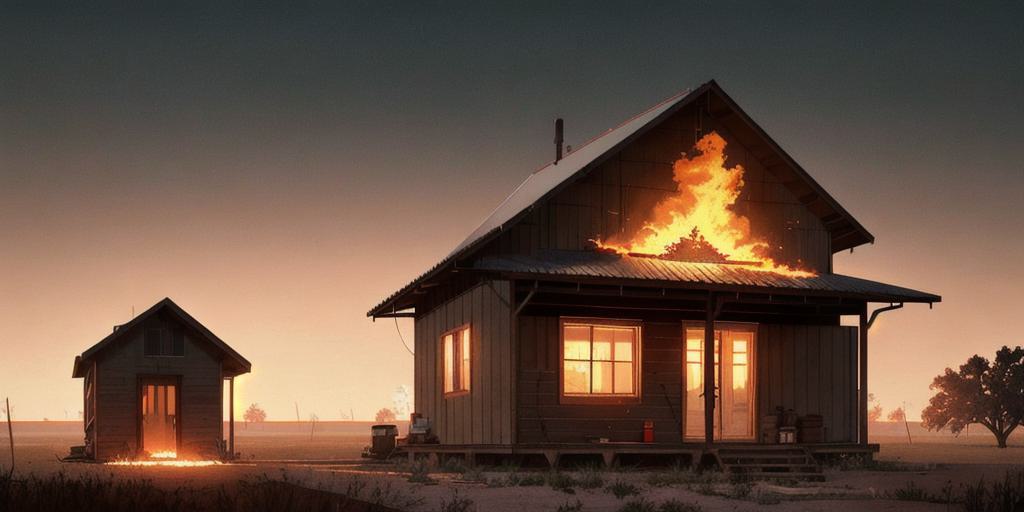
Fire as Friend and Foe in Off-grid Living
When you step off the conventional path and embrace the freedom of off-grid living, you’re signing up for a life that is more in tune with nature, more self-reliant, and, yes, more challenging. One of the key aspects we need to address is fire safety. Fire – it’s an element that can be both our friend and foe, providing warmth and energy, but also posing a significant risk if not handled with respect and understanding.
Fires can be a crucial part of an off-grid lifestyle, providing heat for cooking, warmth during colder months, and a means of transforming raw resources into usable goods. Yet, they also hold the potential for destructive force. As reported by the New York Times, wildfires caused by utilities have spurred a growing number of homeowners to seek off-grid solutions. But in doing so, it’s critical that we understand how to use and control fire safely.
Understanding Fire Safety Regulations in Texas
When living off-grid in Texas, it is crucial to be aware of the local fire safety regulations. The Lone Star State’s wide-open spaces and often dry conditions can make it particularly susceptible to wildfires. In response, the state has set in place certain regulations to help prevent these disasters and ensure the safety of its residents.
These regulations cover a wide range of areas, from the construction and maintenance of buildings to the safe handling and storage of flammable materials. For instance, certain materials may be forbidden in construction, and firebreaks may be required around buildings. It’s important to familiarize yourself with these rules and ensure that your off-grid home is in compliance.
But it’s not just about following rules for the sake of avoiding fines or penalties. It’s about understanding the reason behind these rules – the safety and well-being of you, your family, and your community. As the Texas Tribune highlighted, the power grid conditions can be unpredictable, so having a safe, independent source of heat and power becomes even more critical.
Building a Fire-Safe Off-grid Home
When it comes to building your off-grid home, fire safety should be a top priority. This means choosing materials that are fire-resistant, designing your home to minimize fire risks, and setting up systems for detecting and extinguishing fires.
One of the key aspects of a fire-safe home is the choice of materials. Fire-resistant materials can significantly slow the spread of a fire and give you more time to respond. This could include using metal roofing, fire-resistant siding, and choosing furnishings that are less likely to catch fire.
Fire safety design also plays an essential role. This could mean installing firebreaks to prevent the spread of fires, designing your home to minimize the accumulation of combustible materials, and ensuring that there are suitable exits in the event of a fire.
Finally, a fire-safe home needs to have effective systems for detecting and extinguishing fires. This could involve installing smoke detectors and fire extinguishers, and setting up a water supply for firefighting purposes.
Living off-grid doesn’t mean living without safety. On the contrary, it requires a deeper understanding and respect for the forces of nature, and a commitment to building and maintaining a home that can withstand its challenges. With careful planning and a focus on safety, we can enjoy the freedom and independence of off-grid living without compromising our well-being.
Off-grid Homes and Property Taxes in Texas
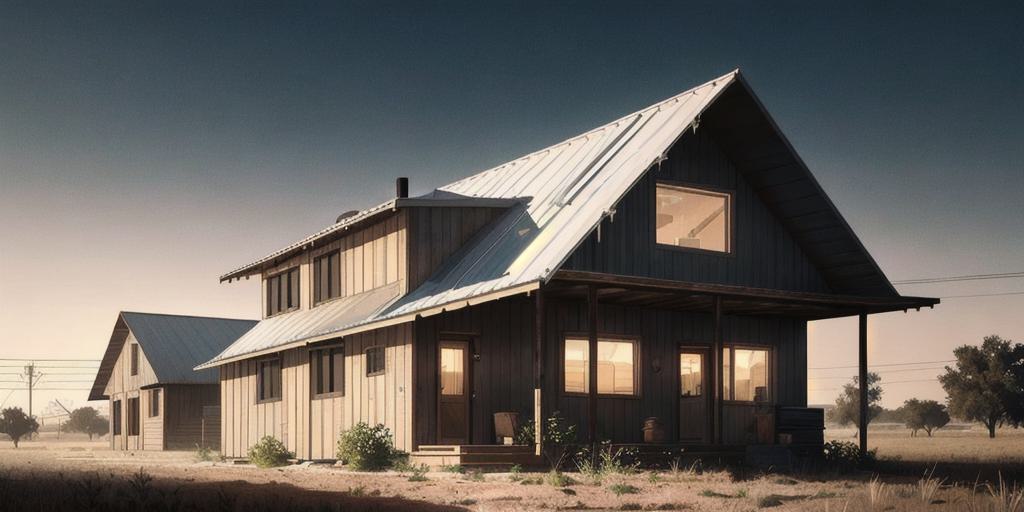
Navigating Property Taxes in the Off-grid Adventure
Imagine warming yourself by a crackling fire under the vast Texas sky, with the freedom of the open road in your RV beckoning, and the satisfaction of knowing you’ve crafted a life on your own terms. But in this new reality, one thing remains consistent, the inevitability of property taxes. Although you’ve traded in the white picket fence for the allure of untamed wilderness, the taxman still wants his share.
When it comes to property taxes, Texas, the land of wide-open spaces, can be a double-edged sword. Property taxes in Texas are known for being among the highest in the nation. But don’t let this deter you. By understanding how these taxes work, you can ensure you’re not paying more than you need to. Just as you’ve learned to harness the power of the sun for your solar panels, you can learn to navigate the complexities of Texas property taxes for your off-grid lifestyle.
According to a report, the real estate taxes in Texas are predominantly used for public expenses, like maintaining roads and funding school districts. Understanding the purpose behind these taxes can help you see the bigger picture. Yes, even off-gridders contribute to the shared societal fabric.
Off-grid RVs and Property Taxes: What’s the Connection?
Here’s the deal. In Texas, RVs can be considered personal property, just like your car or boat. While you might be using your RV as your primary residence, the state of Texas may not view it the same way. This means you could be taxed differently compared to a traditional home or a piece of land. However, while you may not be able to claim a homestead exemption on an RV, there are other ways to reduce your tax liability.
When it comes to RVs, depreciation is your friend. Unlike real estate, which often appreciates over time, RVs generally depreciate, decreasing in value the longer you own them. This depreciation can play in your favor when it comes time to pay property taxes.
It’s important to note that tax laws can change and can vary from one location to another. It’s wise to consult with a tax professional who is familiar with the specific laws and regulations in Texas. And remember, while taxes may seem like a nuisance, they also contribute to the infrastructure and services that make our way of life – even off-grid living – possible.
Embracing Clean Energy and Reducing Your Tax Burden
One of the key aspects of living off-grid is harnessing renewable energy resources. Texas is a leader in clean energy projects, which not only benefits the environment but can also have a positive impact on your property taxes.
A recent report from the American Clean Power Association highlighted that Texas led the nation in clean-energy projects installed and those under construction. That contributes to a lower tax burden for property owners in the state.
Investing in renewable energy sources like solar or wind power can provide you with a sustainable power source for your off-grid home. At the same time, it can also qualify you for significant tax incentives. These incentives can help offset the costs of installing renewable energy systems and reduce your overall tax liability.
So, while living off-grid and navigating property taxes might seem like a challenging endeavor, remember, it’s all part of the adventure. With the right knowledge and resources, you can carve out your piece of the Texas wilderness, live the off-grid life you’ve always dreamed of, and still keep your taxes in check. It’s all part of mastering the art of off-grid living.
Getting Electrical Service Off the Grid in Texas
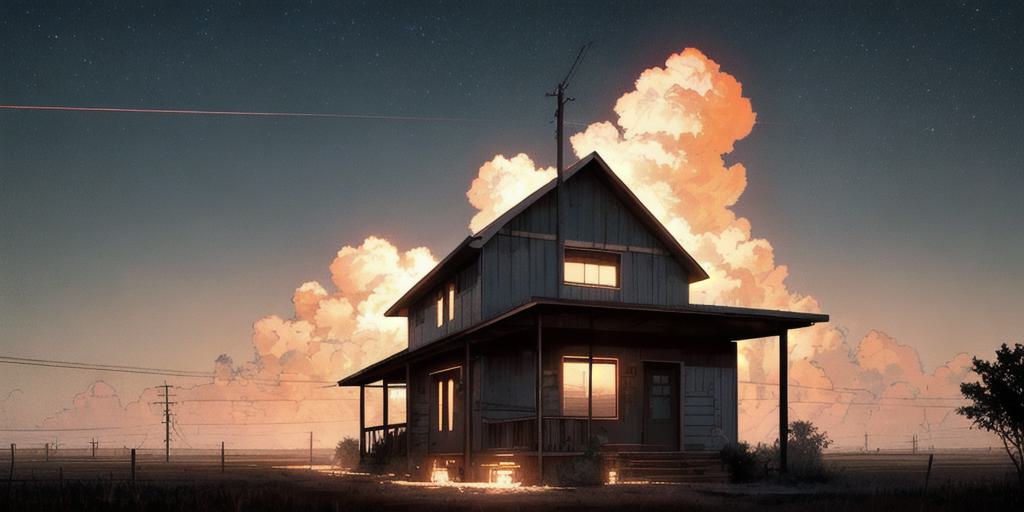
Stepping into the Wild: Generating Your Own Electricity in Texas
Generating your own electricity off-grid is not just a dream; it is a journey towards self-reliance, a statement of independence, and a step towards environmental responsibility. Much like the pioneers of the past, off-gridders in Texas are pushing the boundaries of conventional living.
Recent reports highlight the state’s potential for solar energy generation and the continued interest in tapping into that potential. This interest is not surprising considering Texas’ abundant sunshine and vast, open landscapes. It’s a potential goldmine for off-gridders seeking to harness solar power.
However, the journey of transitioning to self-produced electricity is not without its challenges. The recent winter storm disaster in Texas that left millions without power highlights the importance of having a reliable and resilient energy system.
Creating Your Own Off-Grid Electrical System
When creating your own off-grid electrical system, it is crucial to understand the different components and how they interrelate. At its most basic, an off-grid electrical system comprises solar panels or wind turbines, a charge controller, batteries, and an inverter.
The solar panels or wind turbines generate electricity, which is then regulated by the charge controller to prevent overcharging of the batteries. The batteries store the electricity for use, while the inverter converts the stored electricity from DC (direct current) to AC (alternating current) for use in your home.
When planning your system, consider your energy needs, local weather patterns, and the scalability of the system. It’s always better to start small and scale up as you better understand your energy usage and system performance.
Remember, you are not alone on this journey. There are many resources available to help you navigate your off-grid adventure. Harnessing the power of online communities, like those found in the digital frontier of the internet, can provide a wealth of knowledge and support.
Regulating Your Off-Grid Power: The Role of ERCOT
While going off-grid means you’re generating your own power, it doesn’t mean you’re completely disconnected from regulatory bodies. In Texas, the Electric Reliability Council of Texas (ERCOT) plays a crucial role in maintaining the stability and reliability of the state’s power grid.
Even though you’re generating your own power, any surplus energy you produce could be fed back into the grid. This process, known as net metering, could earn you credits and potentially offset some of your system costs. However, it’s crucial to understand the rules and regulations around this process, as they can vary from state to state and even between different utility companies.
While the recent failure of the Texas power grid has raised questions about its management and resilience, it also underscores the importance of having a reliable and independent off-grid system. This event can serve as a catalyst for going off-grid, reinforcing the importance of self-reliance and resilience.
Ultimately, going off-grid in Texas or anywhere else is not just about disconnecting from the traditional power grid. It’s about reconnecting with nature, relying on your own capabilities, and building a life that aligns with your values. It’s about writing your own story of independence, resilience, and sustainability.
Texas’s Right-to-Farm Laws and Off-grid Homesteading
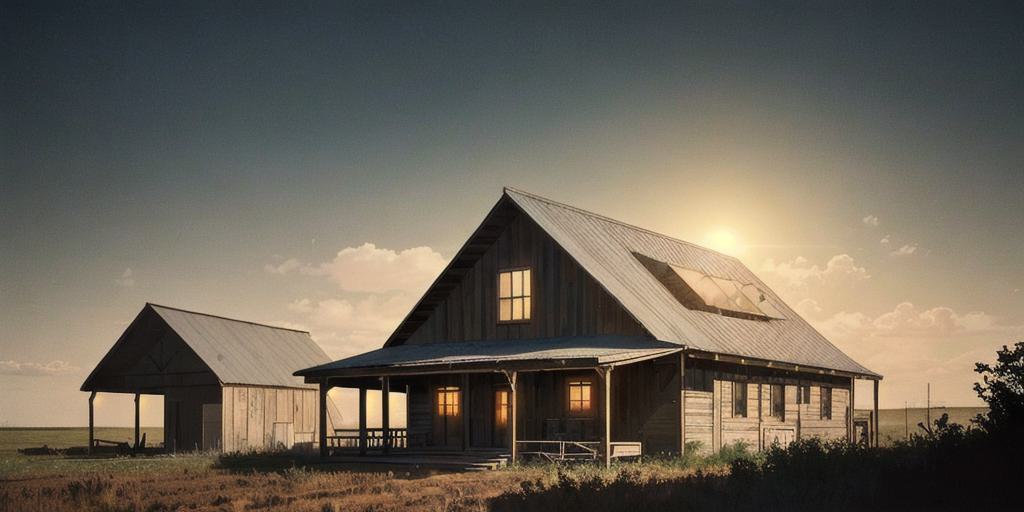
Embracing the Agrarian Ethos: Texas’s Right-to-Farm Laws
When you think of going off-grid, the first thing that often comes to mind is energy independence. However, sustainable living extends far beyond that. It permeates every aspect of your life, including the food you consume. In Texas, the Right-to-Farm laws play an essential role in supporting this back-to-nature ethos.
These laws protect farmers and ranchers from nuisance lawsuits filed by neighbors or local governments that could potentially disrupt farming operations. If you’re planning to grow your own food, raise livestock, or even establish a small-scale organic farming operation, understanding these laws can be crucial to your off-grid journey.
But remember, with great freedom comes great responsibility. Abiding by best practices for sustainable farming, ensuring ethical treatment of animals, and maintaining harmony with your neighbors and local ecosystem are all part of this off-grid lifestyle.
Building a Sustainable Homestead: The Role of Zoning Laws
Living off-grid is not just about energy and food; it’s also about the physical structure you call home. Texas’ relaxed zoning laws make it more feasible to experiment with alternative housing structures that align with your sustainable ethos, such as cob houses, straw bale homes, or even converted shipping containers.
These laws give you the freedom to design and build a home that truly reflects your values and lifestyle. Whether you dream of a minimalist tiny house or a sprawling earthship, understanding local zoning laws and building codes is crucial to making that dream a reality.
However, it’s important to remember that while Texas’ laws are more relaxed, you’ll still need to comply with certain health and safety standards. So, while you have the freedom to be creative, ensure your home is safe and structurally sound.
Water Rights and Off-Grid Living
In the realm of off-grid living, water is another key resource you’ll need to consider. Texas operates under the ‘Rule of Capture,’ which essentially allows landowners to pump as much groundwater as they wish, providing it’s for beneficial use on their property.
This rule can be an advantage for off-gridders planning to establish a self-sufficient homestead. It allows you to drill your own well, install rainwater harvesting systems, or even create a pond for irrigation. However, it’s important to ensure any water collection or usage aligns with local regulations and respects the rights of neighboring landowners.
Living off-grid is as much about respecting the natural order as it is about self-reliance. As you venture deeper into this lifestyle, remember to view each legal framework, be it right-to-farm laws or water rights, as part of the bigger picture of sustainable living.
Off-grid Homes and Zoning Laws in Texas
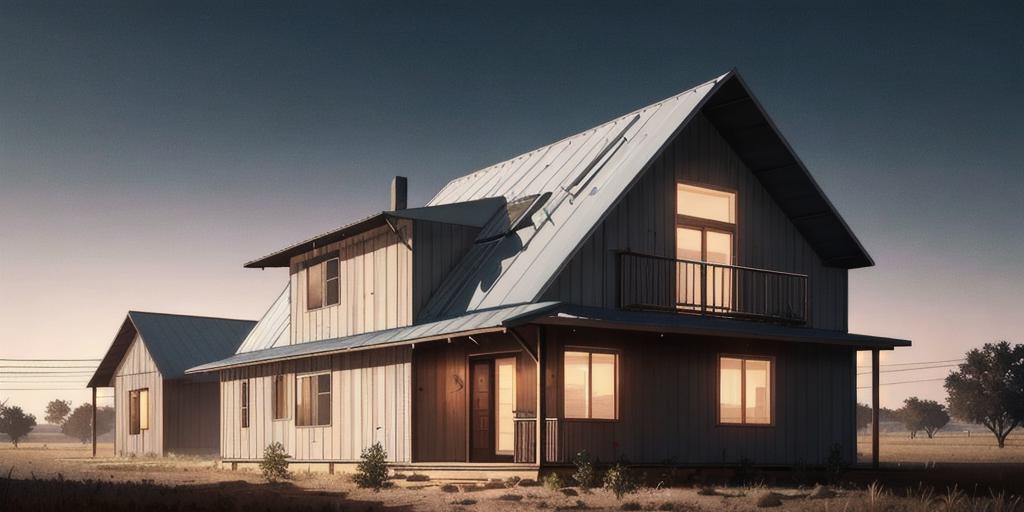
The Freedom and Responsibility of Building Off-Grid
Going off-grid in Texas, as with any other state, is an exercise in autonomy. It’s about crafting a lifestyle that aligns with your values – one that reduces your carbon footprint, promotes self-sufficiency, and fosters a deep connection with the natural world. Yet, it’s also about understanding and operating within the legal framework of your state. To borrow a phrase from the Emerald Earth community, “freedom and responsibility are two sides of the same coin.”
As you plan your off-grid home in Texas, keep in mind that while the state’s zoning laws are more relaxed compared to others, they are not non-existent. Health and safety standards still apply, and your home, be it a tiny house in your backyard or an innovative earthship, needs to be safe and structurally sound.
Harvesting Sunlight and Water: Off-grid Resource Management
Living off-grid is not simply about severing ties with utility providers. It’s about creating a finely-tuned ecosystem that meets your needs while respecting the environment. A crucial part of this is understanding and complying with Texas’s laws on solar panels and water rights.
Contrary to some misconceptions, solar panels are not banned in Texas. However, homeowners’ associations in some areas may have restrictions, so it’s essential to check local guidelines. Similarly, the state’s ‘Rule of Capture’ allows landowners to pump groundwater, but usage must be responsible and respectful of neighboring landowners.
Off-grid Living as an Ongoing Journey
Going off-grid is not a one-time event, but a continuous journey. It’s about learning and adapting, about embracing both the freedoms and responsibilities that come with this lifestyle. As you navigate the legal landscape, remember to view these laws not as obstacles, but as guidelines that ensure your journey is both safe and sustainable.
After all, the off-grid lifestyle is not just about self-reliance; it’s also about creating a harmonious relationship with the natural world. Just like the residents of Emerald Earth, who live together in a single home on 189 acres, each decision we make, each law we follow, should bring us closer to our goal of a sustainable, self-sufficient life.
Texas’s Off-grid Living Communities: A Growing Trend?
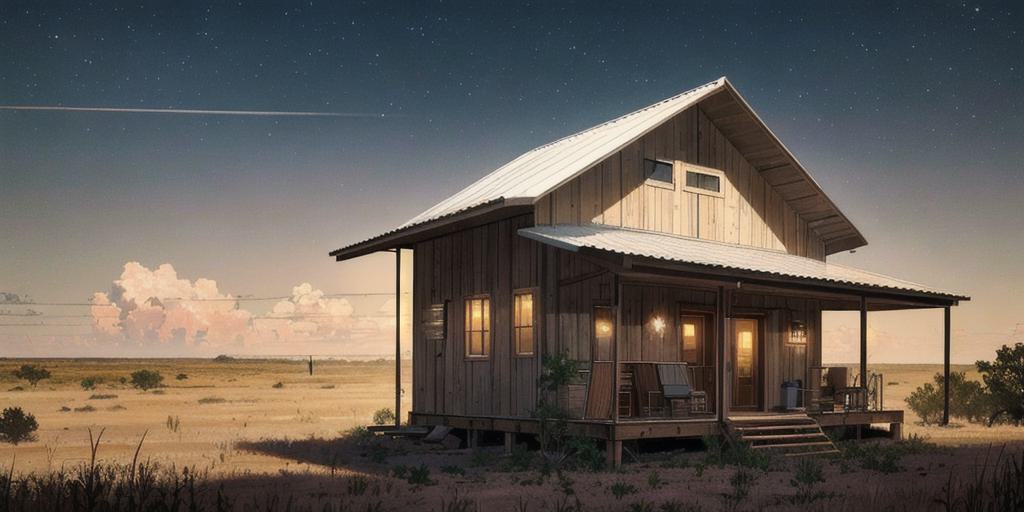
A Symbiosis with Nature: Off-grid Agriculture in Texas
The journey to off-grid living also includes exploring the fertile grounds of self-sustaining agriculture. The concept of growing your own food is not simply about a return to our ancestral roots, but a radical recalibration of our relationship with Mother Nature, one that is guided by respect and mutual benefit.
However, engaging in agriculture also means adhering to Texas’s farming regulations. The state encourages organic farming, with specific guidelines around pesticide use and soil conservation. It’s important to familiarize yourself with these rules, as they are designed to promote healthy ecosystems and maintain the integrity of your land for generations to come.
Adapting to Change: Resilience in Off-grid Living
Living off-grid is an exercise in resilience, a constant dance with the unexpected. In Texas, this can mean flash floods, droughts, and extreme temperatures. Preparing for these contingencies is not just about survival — it’s about stewarding the land, water, and resources that sustain you.
Building resilience means thinking ahead, and Texas’s building codes reflect this. For example, the state has specific regulations for homes in flood-prone areas to mitigate damage and protect residents. Embracing these measures is part of the larger off-grid ethos: acknowledging our vulnerability to nature’s whims and adapting our lives to her rhythms.
Embracing a New Paradigm: Off-grid Communities in Texas
More and more Texans are choosing to step off the beaten path and into a lifestyle that defies conventional norms. But off-grid living is not about isolation. It’s about community, about sharing knowledge, resources, and support. In Texas, communities like Dancing Rabbit Ecovillage are revolutionizing the way we think about living off the grid.
These communities are not just about living in harmony with the earth; they are about creating a new paradigm — one that values collaboration, sustainability, and a deep reverence for the natural world. Yet, just as with individual homes, these communities must navigate the legal landscape, ensuring they adhere to zoning laws, building codes, and environmental regulations.
Ultimately, joining or building an off-grid community in Texas means becoming part of a larger movement, one that is reimagining what it means to live, work, and thrive in the 21st century.
Embracing the Off-grid Lifestyle in Texas: A Compendium of Insights
Living off-grid in Texas is not a departure from society, but a conscious choice towards self-sustainability, environmental mindfulness, and a life more attuned to nature’s rhythm. This journey, though liberating, requires understanding and embracing the state’s legal and environmental frameworks.
Building codes and zoning laws in Texas are diverse, with considerable variations in local regulations. Ensuring compliance while embarking on your off-grid dream is paramount. Whether you’re planning a minimalist tiny house or a sprawling earthship, understanding local zoning laws and building codes is a cornerstone to making your dream a reality.
Water management forms a critical part of off-grid living. The “right of capture” rule allows Texas landowners to pump and use groundwater beneath their property, enabling an off-gridder to set up a self-sustaining water system. However, this must align with local water laws and respect neighbor’s rights.
Transitioning to renewable energy is not a step backwards, but a leap forward. With its abundant sunshine and wind, Texas offers an ideal setting for harnessing renewable power. However, understanding the nuances of these systems is vital for their efficient use. Houses like Earthships that treat their own waste, collect their own water, and grow their own food provide a blueprint for sustainable living.
Off-grid living doesn’t mean you have to completely cut yourself off from the world. Many off-gridders earn an income online, striking a balance between independence and interdependence. It’s about viewing every sunrise as a source of power, every gust of wind as a gift of energy, and every drop of rain as a life-giver.
Property taxes in Texas, though among the highest in the nation, can be navigated with understanding and planning. Investment in renewable energy sources can qualify you for significant tax incentives, helping offset costs and reducing overall tax liability.
Off-grid living is not just about surviving, it’s about thriving. It’s about creating a lifestyle that aligns with your values, finding a balance between independence and community, and embracing a new way of life that brings you closer to nature. It’s about living off the grid, but not off the map.